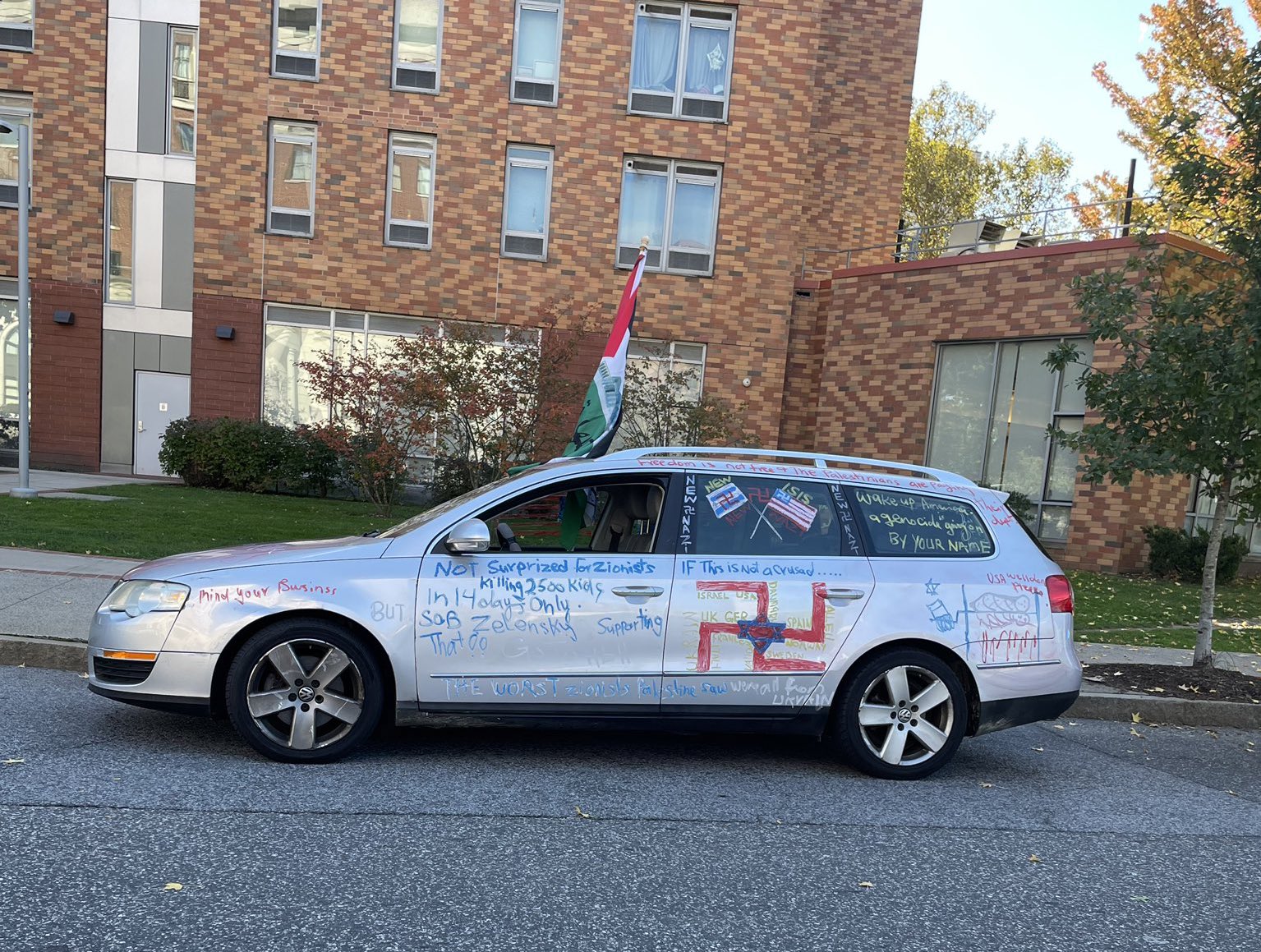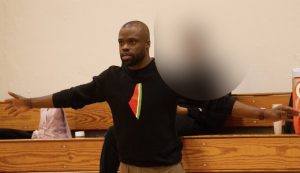In a recent incident in Westchester County, New York, Hani Saleh, a 47-year-old Elmsford resident, was arrested for possessing a loaded semi-automatic gun illegally after authorities stopped his car, which was adorned with anti-Israel messages and swastikas.
Who is Hani Saleh?
Hani Saleh, a resident of Elmsford in Westchester County, was recently taken into custody by authorities in White Plains following the discovery of a loaded semi-automatic firearm in his car. Saleh’s vehicle, which was covered in swastikas and anti-Israel messages, caught the attention of law enforcement, leading to his arrest.
Notably, the Westchester County District Attorney’s Office provided images from the complaint, revealing disturbing messages and symbols displayed on Saleh’s Volkswagen Passat, including an American flag featuring a white Nazi symbol instead of the customary 50 stars and a Star of David intertwined with a swastika.
Additionally, phrases such as “Hamas resistance is not terrorism” and “New ISIS” were prominently painted on the vehicle, emphasizing Saleh’s apparent advocacy for the Palestinian cause.
Also Read: Ragmen Sahaf bookstore displays ‘Jews not allowed’ board in Istanbul, Turkey
According to reports, Saleh’s statements to the police during the arrest shed light on his motivations for the controversial display on his car. He purportedly claimed that he was aiming to educate the public about the realities of the ongoing conflict between Israel and Hamas.
In his discourse with law enforcement, Saleh even referred to President Biden as a Zionist, emphasizing his opposition to what he perceived as biased narratives in the media. Moreover, he allegedly disclosed that his intentions included driving to Washington, D.C., to participate in a protest against the war, illustrating his active involvement in advocating for his beliefs.
Saleh’s situation has raised questions about the boundaries of free speech and the dissemination of hate speech, particularly in the context of sensitive geopolitical conflicts.







